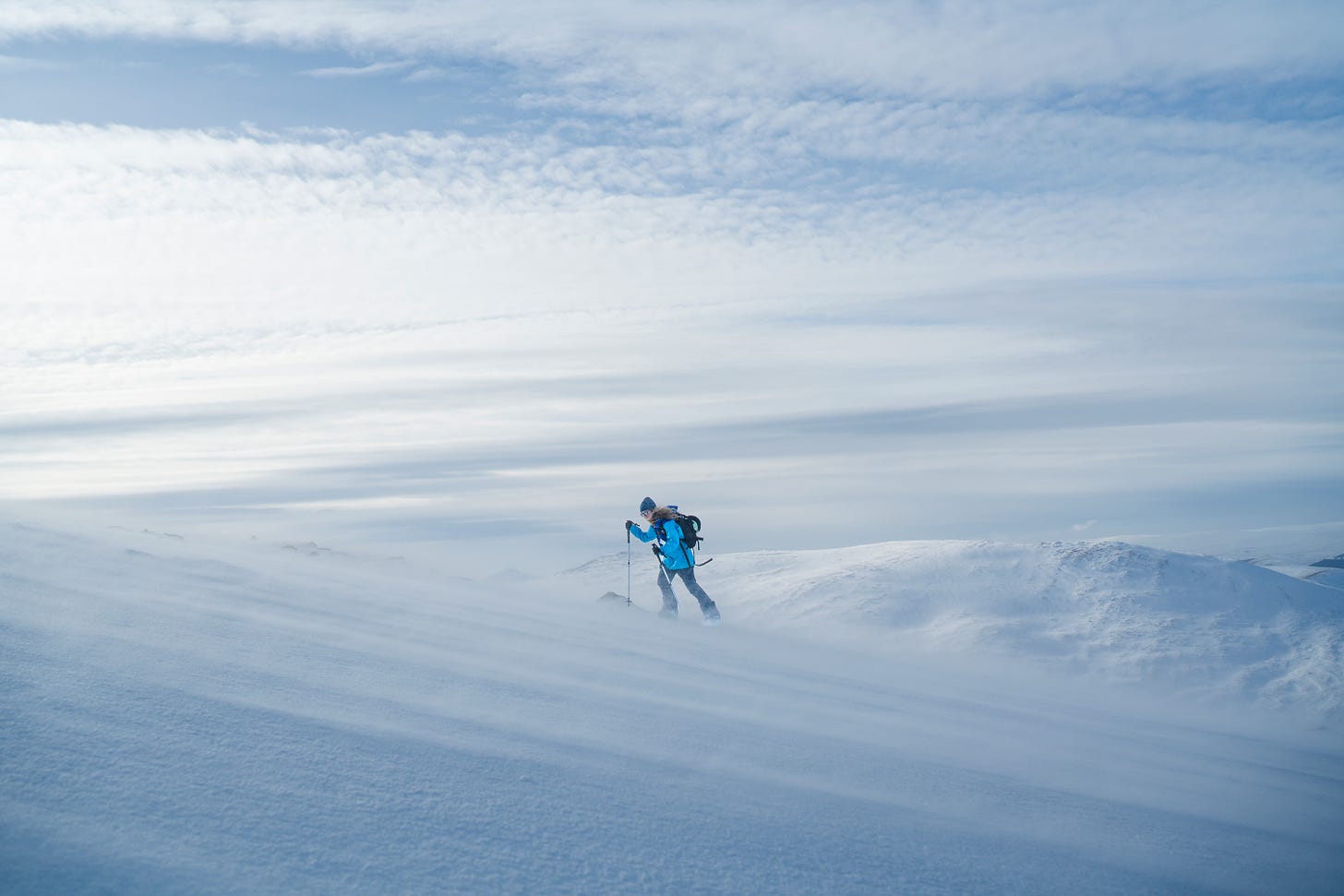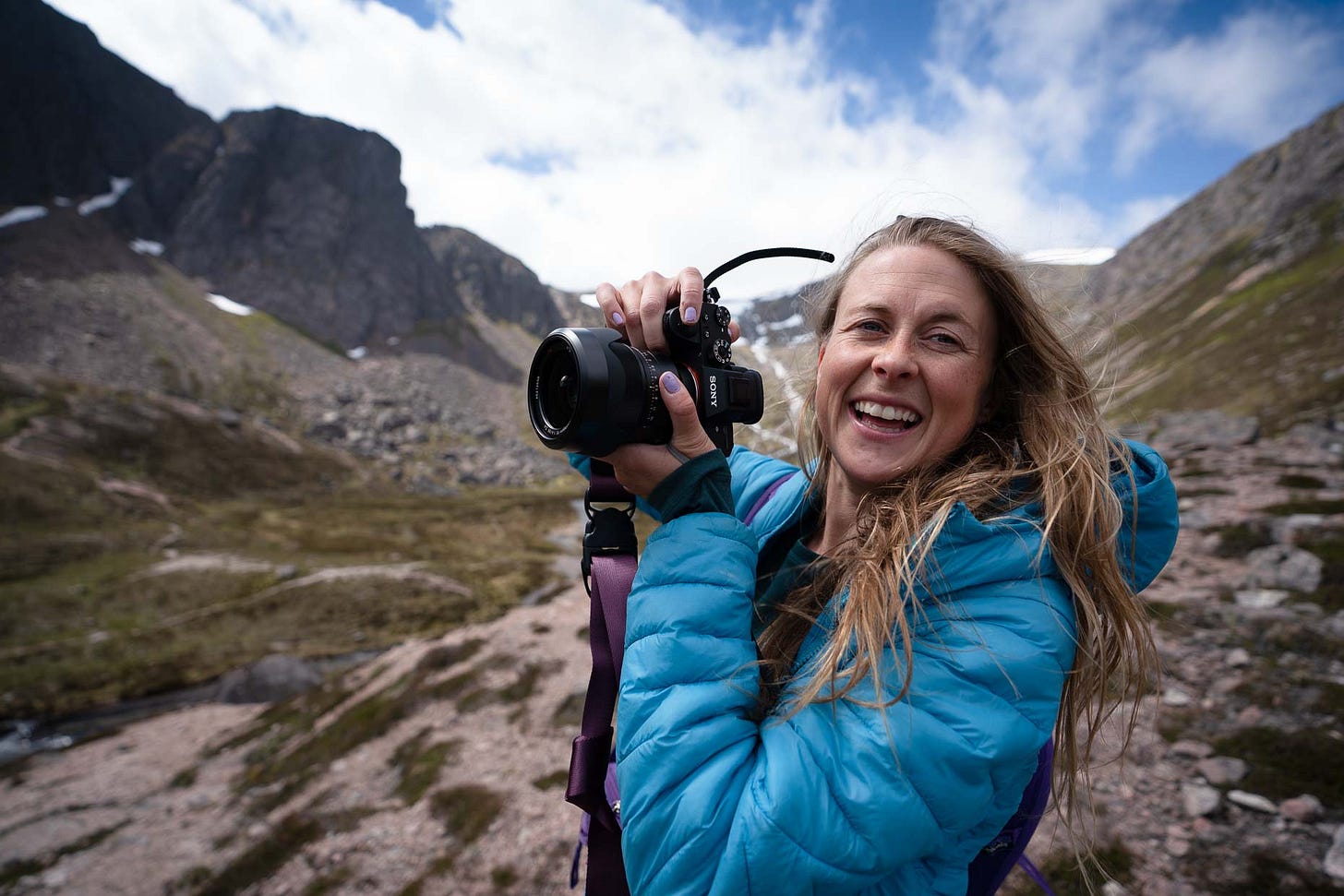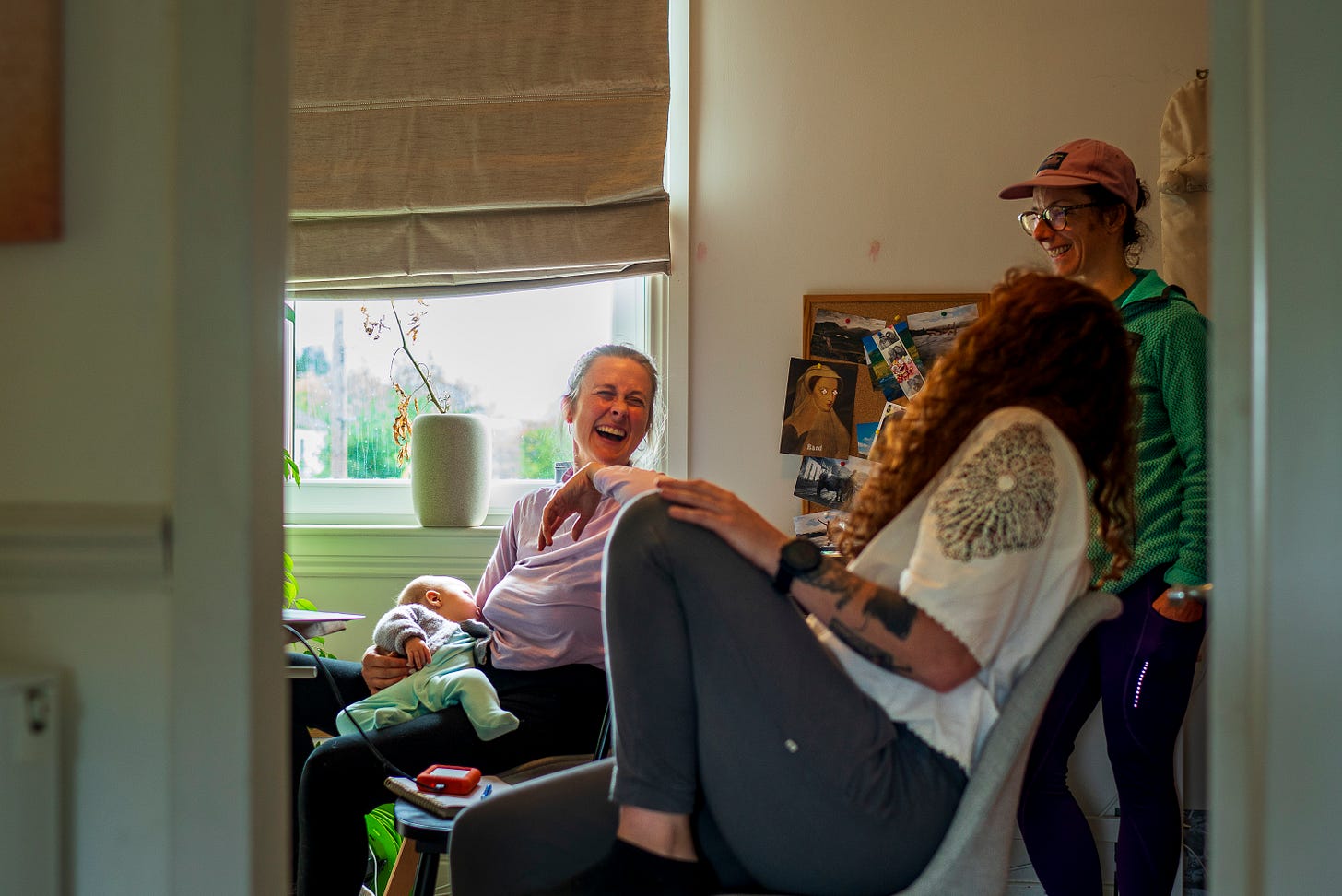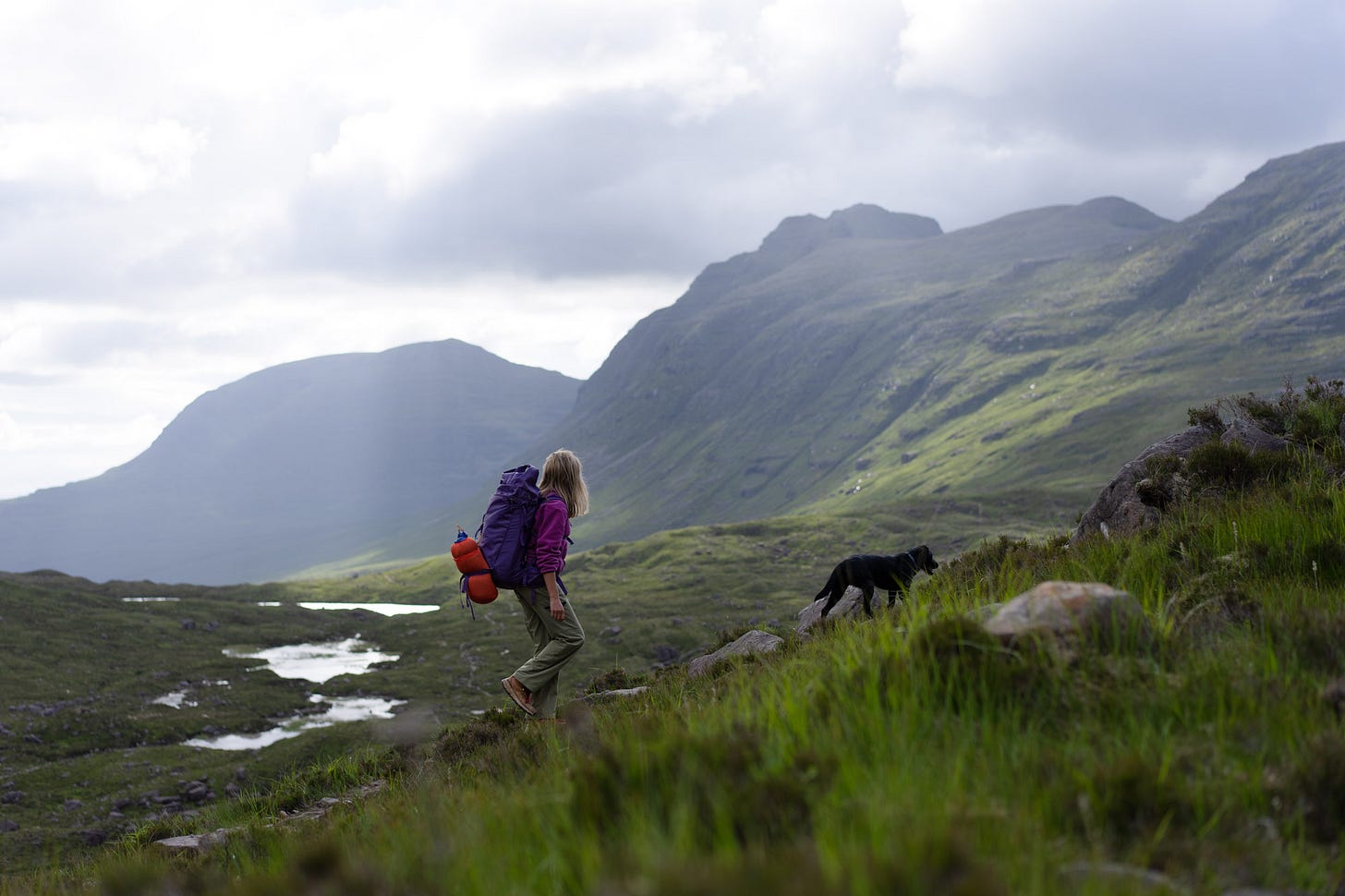Framed Outside: Meeting Hannah Bailey
Part 2: Creative path, advices & opportunities
This whole conversation with Hannah Bailey was super insightful, so grab a coffee and enjoy reading part 2! (if you missed part 1 it’s here)
Can you talk to us about some of your favourite creative projects ?
Definitely capturing the women's skateboard scene fulfilled me for so many years, there was many stories to capture from the grassroots to the professional skaters. I have to nod to a few stories within this part of my career because it was really defining and memorable. I will never forget the places I got to travel, working with Skateistan, the skateboard charity, in Afghanistan, South Africa and Cambodia. I met girls and women skateboarding in all those countries who were up against boundaries and barriers like no others. Very different barriers throughout the countries.
It was a huge perspective shift for me. One thing that I realised when I traveled photographing women in skateboarding, sport is like a language that you just connect over. You don't have to speak the same language, but you're carrying a skateboard or you've got a football or you're playing basketball. We're all just the same humans regardless of your language or your ethnicity or your religion.
Skateboarding started really gaining a huge popularity with the Olympics, the opportunities have gone up to a whole other level. I'm excited to see that as our mission was always to showcase skateboarding so that it got the platform and the exposure. You look at Paris last year and it was one of the most focused sports in the Olympics.
But because of that, it gave me a bit of time and space to realise, oh wait, where was I before skateboarding? What was I putting my camera on? What was I thinking about? Where else does my creativity and my passion want me to point the camera?
Photo by Hannah Bailey
Naturally I went back to doing more work within snow sports, particularly by being here in the highlands of Scotland and having the snow on my doorstep. I got out to photograph snowboard muses such as Leslie McKenna and Lauren MacCallum, and follow their stories. I naturally wanted to do more within action sports, encourage more people to access the outdoors, in a way that's safe - safe for the environment and safe for them.
While being on this path, I always continued to work in communications. In 2018, I started working with Patagonia, with an opportunity to go into a maternity cover, which actually meant that I went in-house with them. Getting that access to the wisdom, the education and the resources that they have around environmentalism within the spec and the sector was really enlightening, relevant to me then and interesting. It also opened the door to thinking broader and shooting more with various action sports in the outdoors.
Communications has been really key to helping me understand where I can fit in as a photographer within these sports and again, seeing where that gap is and trying to help fulfil it and meet it.
Photo by Rupert Shanks
At Patagonia for example it was, what are we communicating about ? We communicating about so many other things that are important to this brand, to this world and to this industry, more important than selling this waterproof jacket. And people understand that.
Going back to my comment on the whole realisation of the power of the consumer, sometimes in other companies there were comments like “there's less of a market of female skateboarders, so we're not gonna make this product”. But that market was waiting to be broken into and they were waiting to be supported. I think it's the same in the outdoors industry where there was a lot more people than what was being shown in marketing. You know, a lot more ethnicities were wanting to be included in this industry and they weren't being, and it's the brands that were able to realise the wrongs of the industry, that really have gone on to do a lot of great work to make change in the industry over the past five years.
What did you learn about yourself through the years and all the work that you have done ?
Previously someone said to me “you can't do it all. Hannah. B you've got to choose one thing and just be really good at it”, and I remember at that time thinking, I know you are right and it works for some people, but it doesn't work for me. I so enjoy the variety, work for me feels like Christmas day where I've got all these presents wrapped, they are all different every day. And that's my emails and the opportunities out there to connect things together.
That’s what I have learned about me, I like the variety and that suits me and fulfils me. It is about learning what you're good at and then going with that and not trying to be something you're not.
Of course, I make it sound easy there, it's not easy to want to do everything because sometimes I can get carried away and say yes to too many things or sometimes my work isn't as consistent. I'll have a lot going on and then all of a sudden I would get a no with some projects. But at the same time it’s quite fuelling.
In that time before I became a mom, I realised that I was gonna have this time off work, although I had made a couple of movies, it was ideal because it was in post-production. But I was sure I was going to want to change completely, change career - and actually it has made me want to go back to my roots.
There's still so much to be done in women in action sports in general, that really excites me. I'm like, we are not done. I'm not done. I'm gonna go back to the grassroots, the mountain roots and think about all these projects that I didn't meet before and I would like to meet now, and now I'm sitting in a position of having 10 more years experience, connections, and skills in this area.
That's where the film I made for Patagonia came from: Thrawn. That was realising: I have always wanted to make a film within snowboarding, and I have known Leslie and Lauren for so many years. I have my network and my connections here, and very good support with my partner. Together we can make this film and we can make it well. Basically, what is nearby that you're passionate about and you’re a part of, and that you could make ? Sometimes we try and go so far away to make these ideas but no, you are the best person to make the ideas that are closest to you, closest to your heart, closest to your home.
What advice would you give to women photographer wanting to get into the industry ?
The industry is in quite a tough place and that's one thing to be realistic about. When I was at Kendall Mountain Festival, I was connected with a fellow photographer, up and coming, new to the industry photographer. She was asking me this question, but she was asking it in a way that she was having a tough time working out how to even get her foot in the door. And, one thing I said to her that is really important to think about: Where is the passion that you have for your work and where do you believe someone should see value in your work? And like who is it?
I feel confident when I go and pitch to the people I pitch to because I know where my projects can fit. And it’s also because I have a hundred percent belief in this project, this message, this person that I'm featuring. Getting in touch proactively is a really good place to start. It's not going to get you yeses every time but you have to increase the success rate by pitching it to places that you think it can be successful at. It's all about learning, when you're truly passionate about a project, there will be nos, but deep down you won’t give up because you want to see it out there.
Photo by Rupert Shanks
One thing that we are challenged within our industry as freelancers, there's so much time that we have to give to projects that is unpaid. If you can take that pressure off by having a way to financially support yourself that doesn't put the pressure on your creativity, then maybe that's a good way to work things out. I don't want to ever encourage someone, not just go for it and become like a full-time creative. But sometimes it is good to be a wee bit sensible. That's what my dad would say.
You recently wrote an article about the gender balance in photographers at the Olympics, called We mind the gap, can you tell us a little more about it ?
There was such a spike in women’s participation and representation in sport, that behind the scenes, opportunities weren't given to the up and coming. The grassroots, the women's side photographers were always considered the more risky, as we have not had as much commercial or competitive experience. Because there was no competitive circuit for us to be on. The people that do have experience are the men that were shooting on the sidelines off the men's competitive circuit, which has been in existence for longer. But then in order to fulfil that spike, there has to be more active things happening behind the scenes, in order to close that gap. If we are not considered to be experienced and given those opportunities, that gap is never going to close. Do you know what would be good for the industry? If there's just more and more opportunities? We don't need to “steal” opportunities off people. Just create more opportunities so more people can be part of it.
I see a huge opportunity in our stories and industries, out of our industry. Like, my mom reading about trail running, my mom reading about skateboarding. I'm talking about people that don't participate in these sports, getting something out of the sports that we do, and the stories we tell. I find that connecting stories to the topic of good for our society, good for environment, is what makes it resonates beyond the sport, people understand, they take something away from it.







